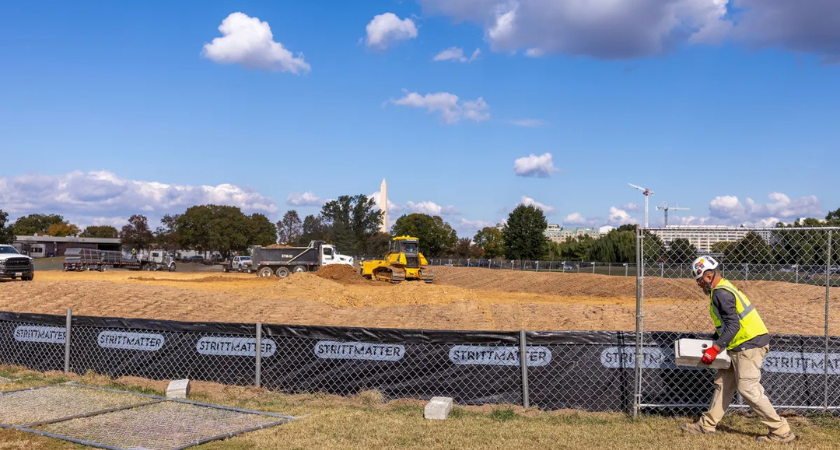
U.S. contractor backlog ticked down in October, revealing a widening gap between firms tied to high-growth sectors and those operating in softer markets, according to new data from Associated Builders and Contractors.
.jpg)
ABC’s latest Construction Backlog Indicator showed average backlog at 8.4 months, a slight drop of 0.1 months from September. The survey, conducted Oct. 20 to Nov. 4, points to a cooling trend that many contractors have felt throughout the fall.
Companies with $30 million to $100 million in revenue saw modest gains in workload, but firms at both ends of the revenue spectrum — under $30 million and over $100 million — reported shrinkage. That uneven distribution reflects how market strength has narrowed across the industry.
Contractor sentiment also softened. ABC said all three confidence measures — sales, profit margins and staffing — declined from the previous month. Yet each index remained above 50, a sign that builders still expect at least some growth over the next six months despite the slowdown.
The shift underscores what ABC economists describe as an industry defined by stark contrasts. Smaller general contractors and firms without a strong focus in one sector saw the largest backlog erosion. According to the report, these smaller builders are now averaging just 5.8 months of work in their pipelines.
At the same time, optimism and workload remain strong among companies working in highly active sectors such as manufacturing and digital infrastructure.
“These findings are consistent with an industry that is sustained by still-elevated manufacturing construction and a surging data center sector,” ABC Chief Economist Anirban Basu said in the release.
.png)
ABC’s survey shows that builders with data center projects enjoy significantly larger pipelines. Basu noted that about one in seven contractors currently hold data center contracts, reporting 10.9 months of backlog compared to 8 months for firms without that work.
That advantage reflects national trends: hyperscale and AI-driven demand continue to drive unprecedented capital expenditure from technology companies, cloud operators and colocation providers. The pipeline of megaprojects — from advanced chip manufacturing to AI model training centers — remains one of the construction economy’s strongest engines.
Recent high-profile examples include Vantage Data Centers, which is planning multibillion-dollar expansions across multiple states. The Denver-based operator will invest $2 billion in a three-building campus in Stafford County, Virginia, according to an announcement from Virginia Gov. Glenn Youngkin. In Wisconsin, Vantage is teaming with OpenAI and Oracle on a $15 billion data center development in Port Washington, part of the broader Stargate initiative.
These types of massive projects have helped stabilize overall industry workload amid softness in commercial real estate, tighter credit conditions and a decline in smaller private-sector developments.
Still, nearly 65% of contractors believe activity is contracting, Basu said — the highest level of pessimism in months and a sign that uncertainty continues to cloud 2026 planning.
With inflation moderating but still above pre-pandemic norms, and financing conditions likely to remain tight until mid-2026, many analysts expect continued unevenness across sectors. Growth is expected to concentrate in infrastructure, industrial facilities, data centers and federally supported projects, while office, retail and small-scale private development remain in retreat.
For now, ABC’s October reading marks the lowest backlog level since May, reinforcing the divide between firms benefiting from transformative megaprojects and those navigating slower, traditional markets.
Originally reported by Sebastian Obando in Construction Dive.